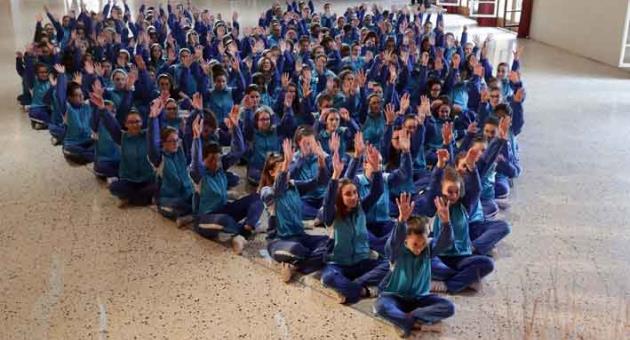BEAT IT – Screening For Sudden Cardiac Arrest In Maltese Adolescents

A project aimed at preventing sudden cardiac arrest in adolescents was launched at Mrieħel Secondary School, St Theresa College. The project brings together the Cardiology Department at Mater Dei Hospital, the Ministry for Education and Employment, the University of Malta, the Malta Heart Foundation, and a number of corporate sponsors including TrioMed, importers of Philips.
The project, entitled BEAT IT – Screening for Sudden Cardiac Arrest in Maltese Adolescents, aims to identify high risk individuals attending 5th form in all Maltese and Gozitan schools. This age cohort will take advantage of both the education system in Malta, where education is compulsory, whilst also offering the potential for a large recruitment sample (estimated to be 3500-4000) as students will be clustered in the classroom.
Although the condition is rare, the biological, psychological, and social implications in these instances are significant for both the victim’s family and friends, together with the economic ramifications as a result of the victim’s years of life lost. Individuals are often young, well, and presumed to be healthy, which makes the consequences all the more difficult to accept. More than 80% of these individuals are asymptomatic before sudden cardiac arrest takes place, which is why screening is important, as evidenced by the data present for screening in competitive athletes. Screening with a questionnaire and electrocardiogram has a sensitivity of more than 85%, supporting the implementation of a widespread screening program.
Individuals with abnormalities are at a higher risk for exercise-related symptoms, though the majority, accounting for more than 80%, often have no symptoms prior to an event, with patients often presenting for the first time with a cardiac arrest. Symptoms during exercise may be downplayed if educators are not aware of potential problems, thus serving as a learning platform for teachers in schools.
Those individuals identified as being at a higher risk will be referred to specialist clinics for further investigations and possible treatment. The University of Malta will be studying the genetic correlation of these individuals through the process of DNA sequencing which will shed light on the genetic implications of such abnormalities.
The project, which is led by cardiologist Mark Abela, is expected to last 6-12 months, starting this scholastic year.
Story Credit: http://www.independent.com.mt/articles/2017-10-07/local-news/BEAT-IT-Screening-for-sudden-cardiac-arrest-in-Maltese-adolescents-6736179906


